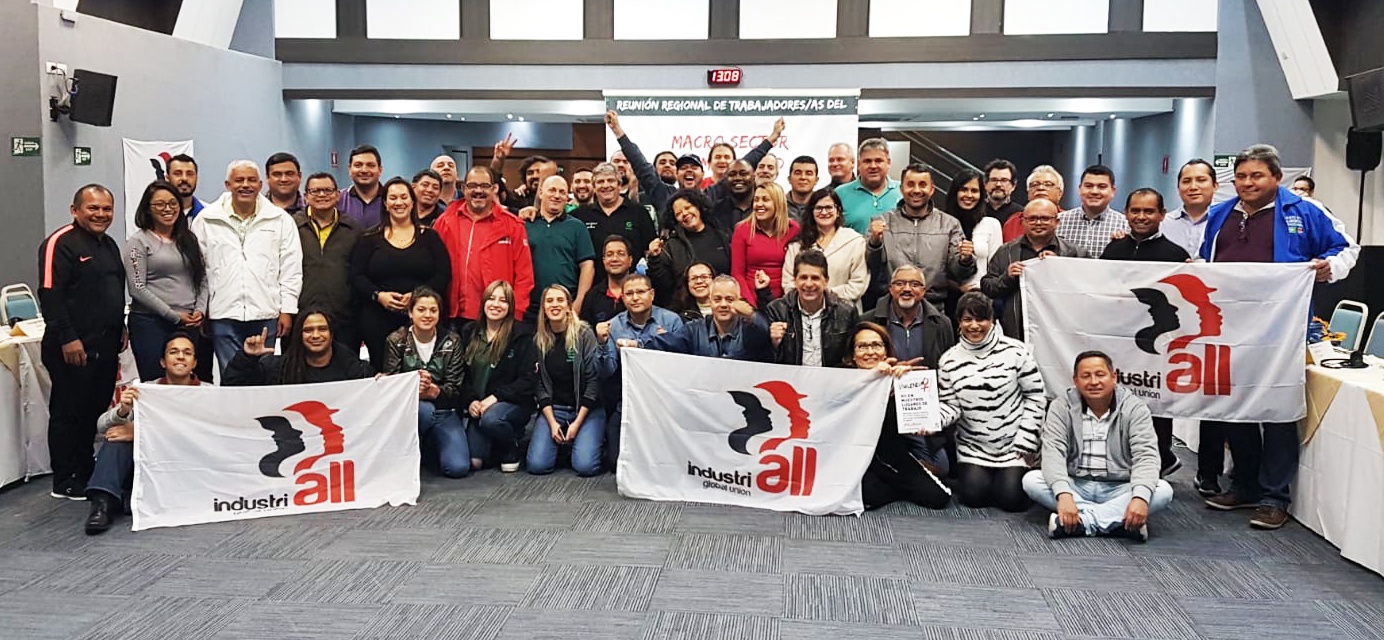23 August, 2019More than 50 Latin American union leaders took part in IndustriALL Global Union's second meeting of the mobility macro sector, which was held on 14 and 15 August in São Paulo, Brazil. Discussions covered the future of the mobility sector, employment and union empowerment in the region.
At the meeting, which was attended by union representatives from Argentina, Brazil, Chile, Colombia, Mexico and Uruguay, the education coordinator at Brazil's Inter-union Department of Statistics and Socio-economic Studies (DIEESE), Fausto Augusto Junior, gave an overview of the current and future situation of the mobility sector in the region. He also looked at how further free trade agreements and the rise of new technologies might affect the sector.
IndustriALL's deputy regional secretary, Cristian Alejandro Valerio said:
"One of the things we agreed on was that, the global economic power is interested for Latin America to continue extracting and producing raw materials rather than be a manufacturing region. Participants also pointed out that governments in the region invest very little in R&D and technology, which makes it difficult to develop the manufacturing industry."
The head of IndustriALL's automotive and aerospace sector, Georg Leutert, moderated a discussion on new mobility concepts, electric vehicles, digitalization and Industry 4.0, with leaders providing details about the extent to which these technologies are used in the region.
IndustriALL's general secretary, Valter Sanches, joined the meeting via video call. He talked about IndustriALL's strategies and the action it was taking to prepare for the future world of work. He also highlighted the need for unions to help ensure a fair transition, given how much employment practices are changing worldwide.
Later on, IndustriALL's regional secretary, Marino Vani, set out IndustriALL's action plan for Latin American and the Caribbean, as well as its strategy and priorities. Finally, workers from the macro sector drew up a number of action plans, which they committed to developing further within their unions and sectors back in their home countries. The action plans had four main priority areas:
- Strengthening union power at the national and regional levels
- Building union networks and fostering dialogue with companies in Latin America
- Promoting and safeguarding sector-related policies at the national and regional levels
- Pressing ahead with the union agenda and priorities for the sector through joint actions and campaigns.
To sum up the meeting, Marino Vani said:
"Participants have come out of the meeting stronger and more confident. We have held in-depth discussions on the challenges facing the working class, and especially workers in the mobility sector in our region. We have also committed to being more united in our actions, further empowering unions and strengthening union representation. We are going to fight for a fair transition, for sustainable industrial policies and for decent and dignified jobs.”
